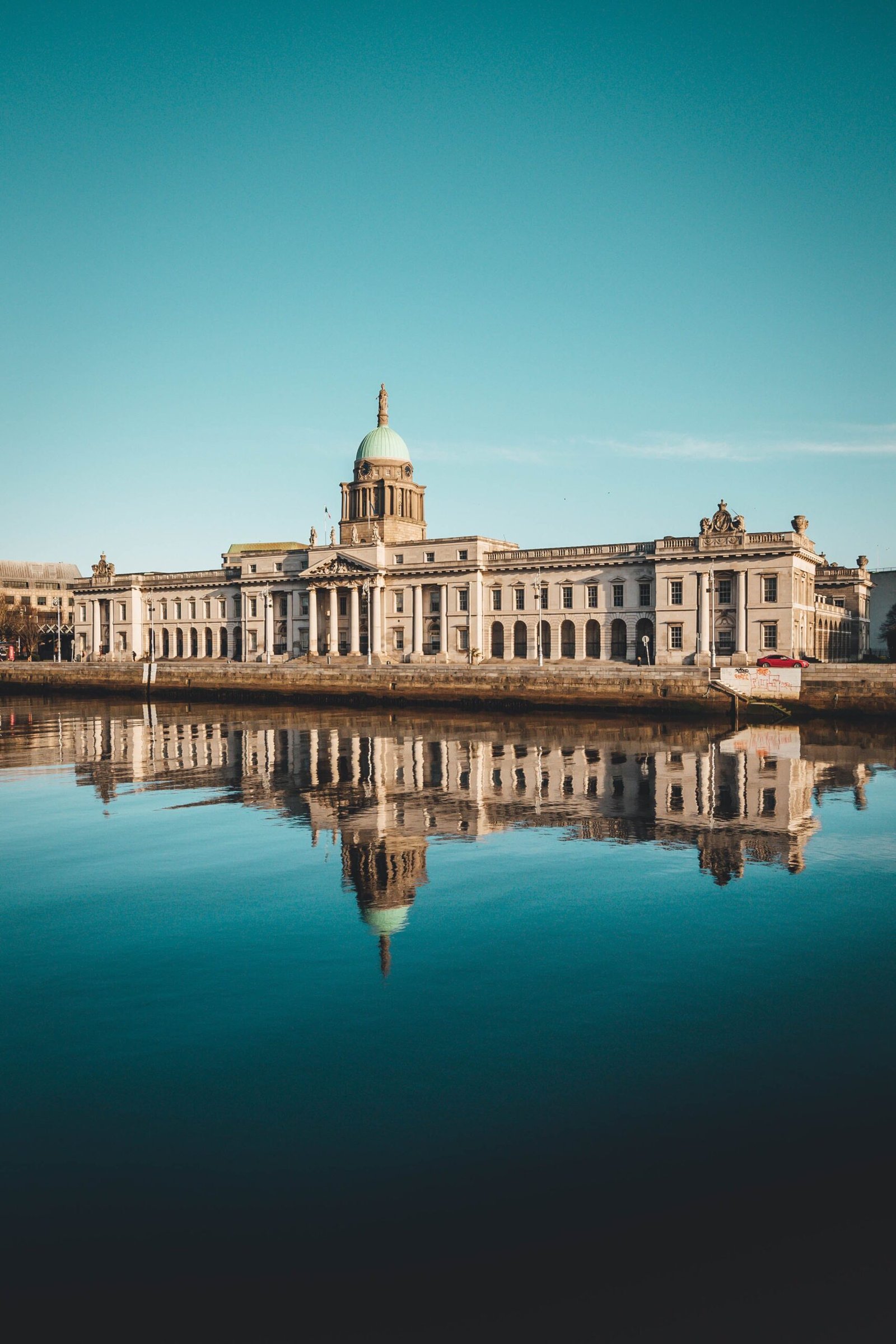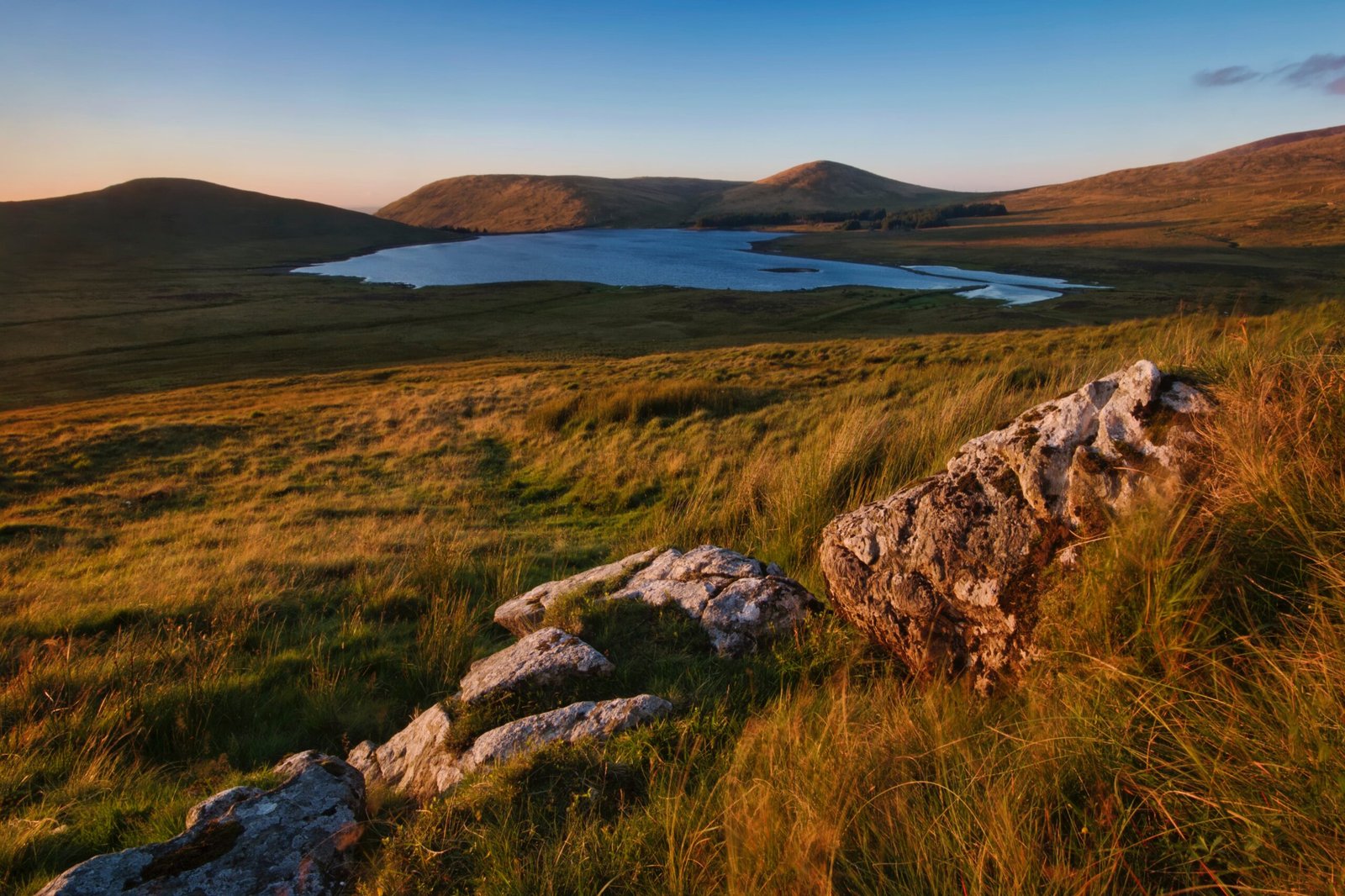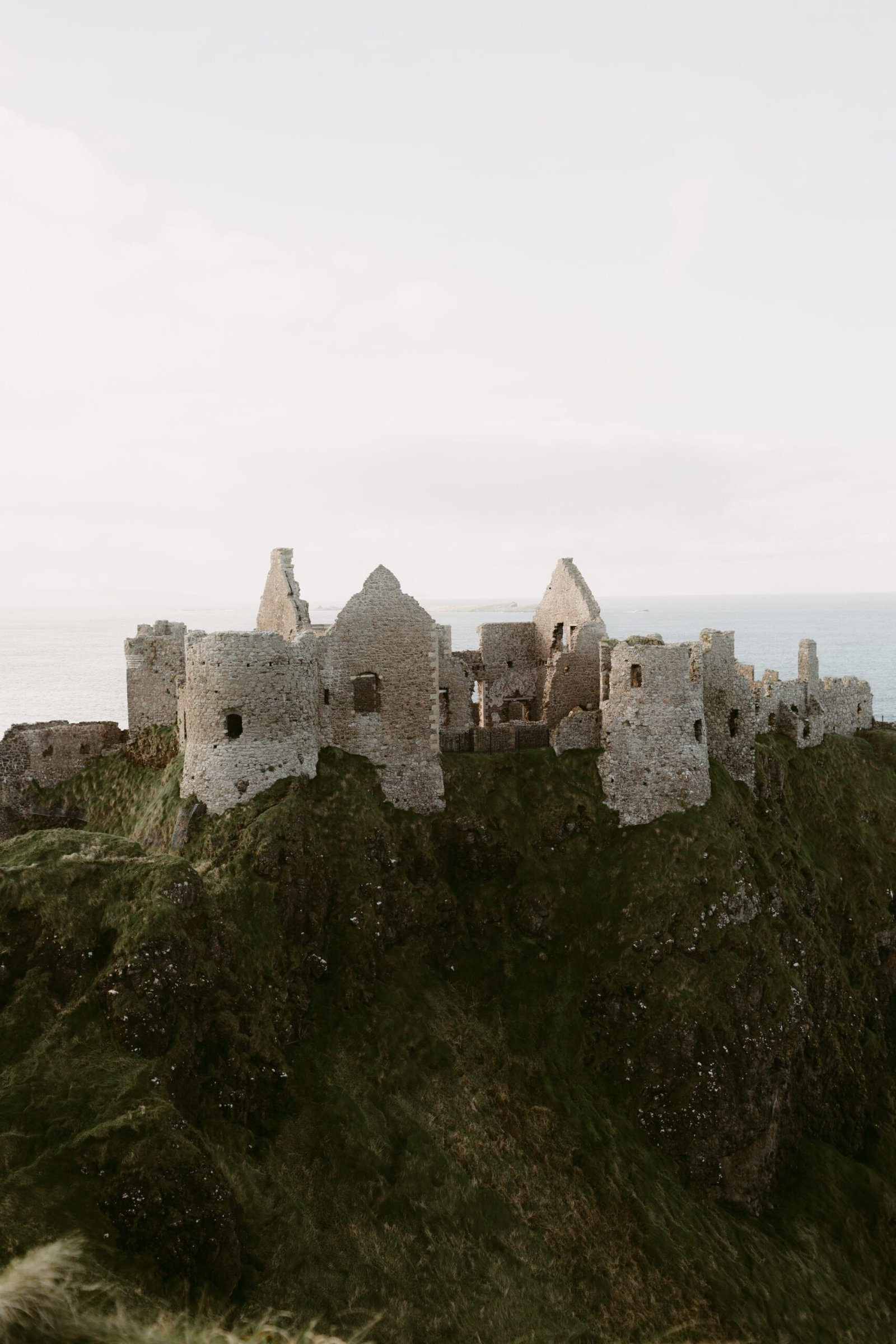
Are you planning on visiting Ireland soon? If so, there are a few important travel tips you should keep in mind. From the breathtaking landscapes to the rich history and culture, Ireland has so much to offer. However, navigating a foreign country can sometimes be a bit overwhelming. That’s why we’ve compiled this useful guide to help ensure that your trip to Ireland is a truly memorable and hassle-free experience. So, whether you’re exploring the vibrant streets of Dublin or venturing into the stunning countryside, read on to discover some valuable advice that will help you make the most of your visit to the Emerald Isle.

Visa and Entry Requirements
Check if you need a visa
Before planning your trip to Ireland, it is important to check if you need a visa. Citizens from certain countries may require a visa to enter Ireland, while others may be eligible for visa-free travel. To determine your visa requirements, visit the official website of the Irish Department of Justice and Equality or consult your local Irish embassy or consulate.
Valid passport
To enter Ireland, you will need a valid passport that is not expired. It is recommended to have at least six months of validity remaining on your passport from the date of your departure. Make sure to check the expiration date of your passport in advance and renew it if necessary.
Entry restrictions
While Ireland generally has a welcoming attitude towards tourists, there are some entry restrictions that you should be aware of. These restrictions may include specific requirements or limitations based on the purpose and duration of your stay. It is advisable to review up-to-date information on entry restrictions before traveling to Ireland to ensure a smooth entry process.
Duration of stay
Depending on your nationality and the purpose of your visit, there may be restrictions on the duration of your stay in Ireland. Tourists from certain countries are allowed to stay for up to 90 days without a visa, while others may require a longer-term visa for extended stays. Be sure to familiarize yourself with the maximum allowable stay for your specific circumstances.
Health and Safety
Travel insurance
Obtaining comprehensive travel insurance is highly recommended when visiting Ireland. This insurance will provide coverage for medical expenses, trip cancellation or interruption, and other unforeseen circumstances. It is essential to carefully review and understand the terms and conditions of your travel insurance policy to ensure that it meets your specific needs.
Healthcare facilities
Ireland boasts a high standard of healthcare facilities, both public and private. In case of any medical emergencies or unexpected health concerns, it is reassuring to know that you will have access to quality medical care. It is advisable to familiarize yourself with the location of nearby hospitals or clinics in the areas you plan to visit.
Emergency services
In Ireland, the emergency services can be reached by dialing 112 or 999. These numbers connect you to the appropriate emergency service, whether it is for medical assistance, fire, or police. It is important to remember these emergency contact numbers and have them readily available in case of any unforeseen circumstances.
Safety precautions
While Ireland is generally a safe country for tourists, it is always wise to take some safety precautions. Keep an eye on your belongings, especially in crowded places, and avoid displaying valuable items openly. It is also advisable to stay in well-lit areas, especially at night, and be cautious of potential scams or pickpocketing in tourist areas. By exercising common sense and being aware of your surroundings, you can ensure a safe and enjoyable trip to Ireland.

Currency and Banking
Official currency
The official currency of Ireland is the Euro (€). It is widely accepted across the country, and most businesses, including restaurants, hotels, and shops, will accept payment in cash or by card. It is advisable to carry some cash for smaller purchases or in case you encounter places that do not accept card payments.
Exchange rates
It is important to be aware of the current exchange rates when converting your currency to Euros. Exchange rates may fluctuate, so it is advisable to check the rates at your local bank or currency exchange office before your trip. Avoid exchanging large amounts of money at the airport, as rates there are often less favorable.
ATMs and banks
ATMs, known as “cash machines” in Ireland, are widely available throughout the country in cities, towns, and even rural areas. Using ATMs to withdraw cash is a convenient option, and it is recommended to notify your bank before traveling to ensure that your card will work internationally. Additionally, banks in Ireland offer a range of services, including currency exchange and international money transfers.
Credit cards
Credit cards, such as Visa, Mastercard, and American Express, are widely accepted in Ireland. They can be used for most purchases, including accommodations, meals, and shopping. However, it is advisable to carry some cash as a backup, as there may be smaller establishments or rural areas that prefer cash payments.
Language and Communication
English and Irish
The official languages of Ireland are English and Irish (Gaeilge). English is widely spoken throughout the country, with Irish being a secondary language predominantly in Gaeltacht regions. As a visitor, you should have no problem communicating in English, as it is spoken fluently by the majority of the population.
Local dialects and accents
While English is the dominant language, it is worth noting that there are regional dialects and accents that may vary across different parts of Ireland. These accents may take some time to get accustomed to, but locals are generally friendly and accommodating in their communication. Embrace the unique accents as part of the Irish charm!
Basic phrases
Learning some basic phrases in Irish, such as “Hello” (Dia duit) and “Thank you” (Go raibh maith agat), can be a fun way to immerse yourself in the local culture. Although English is widely spoken, attempting a few Irish phrases can create a positive impression and demonstrate your interest in the country’s heritage.
Communication options
To stay connected during your visit to Ireland, there are several communication options available. Mobile phone coverage is generally excellent, with multiple service providers offering local SIM cards or international roaming options. Additionally, many cafes, hotels, and public areas provide free Wi-Fi, allowing you to stay connected with friends and family back home.

Transportation
Public transportation
Ireland has an extensive and reliable public transportation system, making it easy to navigate the country. Buses and trains connect major cities, towns, and tourist destinations. Dublin, in particular, has an efficient public transportation network, including buses, trams, and trains.
Driving in Ireland
If you prefer the freedom of exploring at your own pace, renting a car in Ireland is a convenient option. Driving is on the left side of the road, and road signs are in both English and Irish. It is important to familiarize yourself with Irish traffic laws and regulations before embarking on your journey.
Renting a car
Renting a car in Ireland is relatively straightforward, with several car rental companies operating throughout the country. You will need a valid driver’s license, usually issued from your home country, and be aware that drivers under the age of 25 may be subject to additional fees or restrictions. It is recommended to book your rental car in advance to ensure availability, especially during peak tourist seasons.
Cycling and walking
Ireland’s picturesque landscapes and charming cities make it an ideal destination for cycling and walking enthusiasts. There are numerous cycling and walking routes, both urban and rural, allowing you to explore Ireland’s natural beauty up close. Local bike rental shops offer a variety of options to suit your needs, and walking tours are a popular way to discover the historic streets and landmarks of Irish towns and cities.
Weather and Climate
Varied weather conditions
Ireland’s weather is notoriously changeable, so it is essential to be prepared for various weather conditions during your visit. The climate is generally mild, with average temperatures ranging from 5°C (41°F) in winter to 20°C (68°F) in summer. However, it is not uncommon to experience rain, wind, or even sunshine all in the same day!
Rainfall and temperature
Rainfall is a regular occurrence in Ireland, so packing a waterproof jacket or umbrella is highly recommended. The west coast receives more rainfall than the east, and the higher altitudes tend to be cooler. It is advisable to check the weather forecast before heading out for the day and dress accordingly to ensure your comfort.
Packing essentials
When traveling to Ireland, it is important to pack essentials that will keep you comfortable in a variety of weather conditions. In addition to a waterproof jacket or umbrella, consider packing layers of clothing, as temperatures can change throughout the day. Comfortable walking shoes, a versatile daypack, and a universal power adapter are also useful items to include in your packing list.
Seasonal considerations
The time of year you plan to visit Ireland can significantly impact your experience. Spring (March to May) and autumn (September to November) offer mild temperatures and beautiful scenery, with spring being particularly vibrant with blooming flowers. Summers (June to August) can be busy with tourists, but the longer daylight hours provide ample time for exploration. Winters (December to February) are quieter, with shorter daylight hours and colder temperatures, but they offer a unique charm for visitors seeking a more relaxed atmosphere.
Cultural Etiquette
Friendly Irish culture
The Irish are known for their warm and friendly nature, and visitors to Ireland are often greeted with a pleasant and hospitable attitude. Engage with locals, strike up conversations, and don’t be afraid to ask for recommendations or directions. The Irish take great pride in their country and are eager to share their knowledge and experiences with visitors.
Greeting and introduction norms
When meeting someone in Ireland, a handshake is the most common form of greeting. Eye contact and a friendly smile are appreciated and seen as a sign of respect. It is customary to greet people politely and use “please” and “thank you” in your interactions. The Irish value good manners and politeness in their social interactions.
Respecting traditions
Ireland has a rich cultural heritage, and it is important to respect its traditions and customs. If visiting religious sites or attending cultural events, adhere to the dress codes and rules specific to those locations. Similarly, be respectful of Irish traditions, such as music, dance, or folklore, by appreciating and embracing them without appropriating or disrespecting their cultural significance.
Pub and drinking etiquette
Pubs play a central role in Irish culture, serving as social hubs where people come together to relax, enjoy live music, and share stories. When visiting a pub, it is customary to buy your round of drinks in a group setting rather than taking turns. Be aware of your alcohol consumption and drink responsibly to ensure a pleasant and enjoyable experience.
Sightseeing and Attractions
Popular tourist destinations
Ireland offers a wide range of popular tourist destinations that cater to different interests. From the bustling streets of Dublin to the wild beauty of the Cliffs of Moher, you will find something to suit your preferences. Other popular attractions include the Ring of Kerry, the Giant’s Causeway, the Guinness Storehouse, and the historic city of Galway.
Historical sites
Ireland is steeped in history, and historical sites are scattered throughout the country. Explore ancient ruins, such as the Rock of Cashel or the Newgrange passage tomb, and learn about Ireland’s rich heritage and Celtic past. Castles, such as Blarney Castle and Bunratty Castle, offer a glimpse into Ireland’s medieval history and are worth adding to your itinerary.
Natural landmarks
Nature lovers will be in awe of Ireland’s stunning natural landscapes. Explore the rugged coastline of the Wild Atlantic Way, witness the beauty of the Ring of Kerry, or embark on a hike in the picturesque Wicklow Mountains. Ireland’s natural landmarks, including the Cliffs of Moher, the Connemara National Park, and the Giant’s Causeway, provide breathtaking views and unforgettable experiences.
Cultural experiences
Immerse yourself in Irish culture by attending traditional music sessions, visiting local markets, or exploring vibrant festivals and events. Experience the spirit of the people through traditional storytelling, Irish dancing, or a visit to a traditional farm. These cultural experiences allow you to truly connect with the Irish way of life and create lasting memories.
Dining and Cuisine
Traditional Irish dishes
No trip to Ireland would be complete without savoring traditional Irish cuisine. From hearty stews and pies to fresh seafood and delicious soda bread, the country’s culinary offerings are diverse and flavorful. Indulge in iconic dishes like Irish stew, boxty pancakes, colcannon, and the famous full Irish breakfast. Don’t forget to pair your meal with a pint of Guinness or a sip of Irish whiskey for an authentic taste of Ireland.
Dietary restrictions
If you have dietary restrictions or preferences, rest assured that Ireland caters to a variety of dietary needs. Vegetarian, vegan, and gluten-free options are becoming increasingly available in restaurants, cafes, and grocery stores, especially in larger cities. It is always helpful to inform your server of any dietary requirements, and they will usually be accommodating and provide suitable alternatives.
Tipping customs
Tipping in Ireland is appreciated but not always expected. In restaurants, it is customary to leave a tip of around 10% of the total bill for good service. Some establishments automatically include a service charge, so be sure to check your bill. In bars, it is not necessary to tip for individual drinks, but tipping for table service or exceptional service is considered a gesture of appreciation.
Reservations and dining hours
For popular restaurants or during peak tourist seasons, it is advisable to make reservations in advance to secure a table. Dining hours in Ireland typically fall within the range of 6:00 PM to 10:00 PM, with some establishments serving lunch or brunch earlier in the day. However, it is worth noting that dining hours may vary in different regions or during holidays, so it is advisable to check in advance.
Local Customs and Traditions
Traditional music and dance
Traditional Irish music and dance are an integral part of Irish culture. You can experience the lively tunes and foot-tapping rhythms in various pubs, music festivals, or dedicated traditional music venues. Live sessions, where local musicians come together to play, create a spirited atmosphere and give visitors a taste of authentic Irish music.
Celebrations and festivals
Ireland is renowned for its vibrant celebrations and festivals, which provide a unique insight into Irish customs and traditions. From St. Patrick’s Day parades to the Galway Oyster Festival, there is always something happening throughout the year. These events offer a chance to mingle with locals, enjoy cultural displays, and immerse yourself in the festive spirit of Ireland.
Religious practices
Religion has historically played a significant role in Irish society, and Catholicism has been the predominant faith. While religious affiliation has become more diverse in recent years, it is important to respect the religious practices and traditions of the local communities. If visiting churches or religious sites, dress modestly and behave respectfully during services or ceremonies.
Family and community values
The Irish place great importance on family and community values. Respect for elders, strong social connections, and a sense of belonging are deeply ingrained in Irish culture. Engage in conversations, listen to local stories, and experience the warmth of Irish hospitality firsthand. By embracing the family and community values, you will gain a deeper appreciation for the genuine friendliness and warmth of the Irish people.
Visiting Ireland offers a myriad of experiences, from its breathtaking landscapes and rich history to its lively culture and friendly locals. By understanding important aspects such as visa and entry requirements, health and safety precautions, currency and banking options, language and communication, transportation choices, and cultural customs, you can make the most of your trip to the Emerald Isle. So pack your bags, embrace the Irish charm, and get ready for an unforgettable adventure in Ireland!





